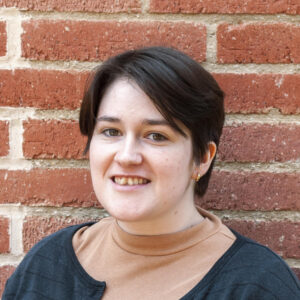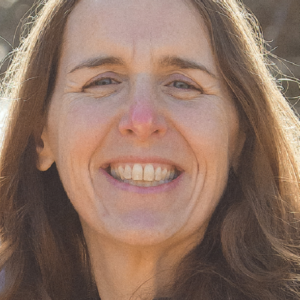Experts are becoming Wikipedia editors in efforts to put the latest climate research in front of public audiences.
When it comes to experts’ understanding of climate science and the public’s understanding, there are some well-documented differences. American Physical Society members have been closing the gaps with impactful work on Wikipedia. With 18 billion page views per month, Wikipedia content has a proven track record for affecting collective behavior across a wide range of sectors.
Since 2019, the American Physical Society (APS) has empowered 110 members—from a high school student to a Nobel Prize laureate—to improve Wikipedia’s coverage of physics and physicists. These scientists practice their science communication on a worldwide stage, write biographies of historically excluded physicists, leverage Wikidata—the open data repository behind Wikipedia—and are now correcting content gaps related to climate mitigation.
Dr. Allie Lau, the APS Public Engagement Sr. Programs Manager, has been instrumental in advancing the work.
“APS was excited about a Wikipedia training course focused on energy and climate science as this is an area of importance to the Society and its members,” Dr. Lau shared.
The virtual courses, seven of them so far including the latest climate-focused iteration, present an opportunity for APS members to connect across disciplines and countries like never before.
“APS recognizes the serious consequences of climate change and urges physicists to contribute to interdisciplinary climate research collaborations and efforts to design solutions to mitigate the human impact on climate,” Dr. Lau added. “The Society is committed to actions that will reduce greenhouse gas concentration and advocates for research and development of carbon-neutral and carbon-free energy technologies.”
Facilitating this chance for physicists to contribute accurate energy research to the public dialogue has been meaningful for the Society. As their Chief External Affairs Officer, Francis Slakey explains, “The Wiki Scientists course is a great tool for achieving our mission of diffusing the knowledge of physics for the benefit of humanity and amplifying the voice for science.”
Correcting well-documented knowledge gaps
By adding up-to-date climate research to Wikipedia, APS Wiki Scientists supported by Wiki Education are helping correct the following gaps in public understanding:
People misunderstand climate science and mitigation.
The public often cites recycling and limiting trash pollution as the actions they think are most impactful for addressing climate change, whereas climate scientists focus on reducing carbon dioxide emissions on a much larger scale and across all sectors of society.

Advances in renewable energy production, like solar* and wind, are some such mitigation strategies that physicists improved on Wikipedia as Wiki Scientists. Morgaine Mandigo-Stoba, one of these physicists, expanded the Wikipedia page about thin-film solar cells, which covers a variety of established and developing thin-film photovoltaic technologies for an audience of 5,000 readers every month. She wrote about what these types of solar cells are made out of; how they work; how they’re produced and the costs of production; their advantages over first-generation silicon solar cells (including being cheaper and safer to produce); recent advancements in how efficient they are for electricity production; their durability and lifetime; how widely used they are in new utility development; and their potential role in meeting international renewable energy goals. She even included a diagram of her own design to illustrate a solar cell I-V curve.
“Adding good data visualizations was really important to me in terms of making this page accessible to a wide audience,” Mandigo-Stoba shared. “Of course, I hope that this exposure can lead to people making more informed energy choices. One thing we talked about in the course is that people can feel a lot of anxiety around taking action against climate change and one way to alleviate that is to simply expose them to possible solutions. I hope that this page can help alleviate some of that worry that people have about finding the ‘perfect’ energy solution and help them feel empowered to explore new green energy technology.”
Another physicist improved the Wikipedia page on wind power, adding the physics at work in the power transfer from wind into energy. This page receives even more readers per month: close to 30,000!
As Mandigo-Stoba explains, the exercise of writing a Wikipedia page is one of science translation. “Taking a topic that at its core is very technical and making it useful and interesting to a broad audience like this is a really fun challenge,” she shared.
People don’t connect the effects of climate change to their daily lives.
Many researchers have long assumed that the public doesn’t feel the urgency around mitigating climate change that scientists do. But according to new research, 61% of Americans say global climate change is affecting their local community and 70% are alarmed, concerned, or cautious. However, many still struggle to explain the connection between their lived experiences and the science behind global warming. Fewer understand how they can help.

That’s why adding regional-specific climate information to Wikipedia pages like climate change in Illinois, as one Wiki Scientist did, is so impactful. This page now explains that, because of climate change, Illinois is likely to experience more frequent flooding, harmful algae blooms on Lake Michigan, and higher temperatures that may harm humans and agriculture. The page also illustrates local mitigation efforts, including strategies to reduce the effects of heat islands, as well as information about the Climate and Equitable Jobs Act–a job retraining program for workers impacted by the transition to renewables.
“When I came across this page for the first time, it was in bad shape,” says APS member Maggie Geppert who tackled the updates. “It was a series of long quotes from a single source from 2016, which is not appropriate for a Wikipedia page. I originally thought about simply going back to the original source and rephrasing the quotes. In that sense, my original goal was to make the page better by just bringing it to some baseline standards. However, a topic like climate change really does need current information, and a single seven-year-old article as a source is not nearly enough. I decided to update the information and expand it from projected effects to current actions people in Illinois are taking to mitigate climate change. People need to know that there is political will in the United States to fight climate change. This is not an impossible task. It’s really, really big and really, really hard, but there are people who are willing to take action now. I chose to edit the Climate Change in Illinois page because it’s about where I live. My students will be able to read it and relate to the places and climate conditions it describes.”
Contributing up-to-date information on this topic in particular counteracts much of the popular mis-narratives circulating about climate science. Wikipedia is nicknamed the “last best place on the internet”, after all.
“When it comes to climate change, there is a lot of misinformation on social media,” Geppert added. “Wikipedia stands as a beacon of truth in an area riddled with lies and misrepresentations.”
People struggle to see where they might pursue climate-related work or they may even distrust scientists.
A Wikipedia biography recognizes a scientist’s contributions in real time. It surfaces her expertise to journalists and panel organizers, humanizes her beyond her CV or university profile, and shows young people interested in STEM what career paths are possible for them. It also does the important work of boosting a scientist’s credibility, changing stereotypes about who gets to be a scientist, and fostering trust in scientific research. This visibility is especially important for climate scientists, who–like other scientists in politicized fields–often encounter pushback in the public sector about how they know what they know.
Wiki Scientists in our courses are putting faces to climate work by writing biographies of scientists. The biographies for Ayana Elizabeth Johnson and Katharine Hayhoe are much more comprehensive now. And Kate Marvel even has a new photo! Thousands of Wikipedia readers are being exposed to the scientific contributions of these scientists and others like them, every day.
Wiki Education kicked off our 8th APS Wiki Scientists course last week, and participating members will celebrate National Hispanic Heritage Month by adding or expanding Wikipedia biographies of Hispanic and Latinx physicists. We’re thrilled at the commitment APS has made toward their mission of providing a welcome and supportive professional home for an active, engaged, and diverse membership, and we look forward to the ongoing work from their dedicated members.
The work lives on.
These are just some of the many examples of helping close the gap between expert and public understanding of climate science.
“Once you get over the fear of editing something which potentially will be read by many people, editing Wikipedia is not that difficult,” one APS Wiki Scientist shared. “Improvements can be made at all levels, from fixing grammar/readability to adding new content. And the benefit is that you are making real contributions to pages that are read by many, helping them make informed perspectives.”
For Geppert, the Wiki Scientists experience was also a new way to interact with her APS membership. “This class was an opportunity for me to mix with physicists in all different places around the world at many different stages in their career,” she added. “It was a lot of fun.”
—
* Links will direct you to Wiki Education’s Dashboard tool, which highlights the parts of Wikipedia articles that scientists in our program are responsible for writing. You also have the option in that window to navigate to the actual Wikipedia article, where you will see the same content. This tool is available to all of Wiki Education’s partners.
Wiki Education is looking to expand its impact on the public’s access to high-quality climate science. If you’re interested in getting involved, visit partner.wikiedu.org to start building your own Wikipedia Initiative with our support.
